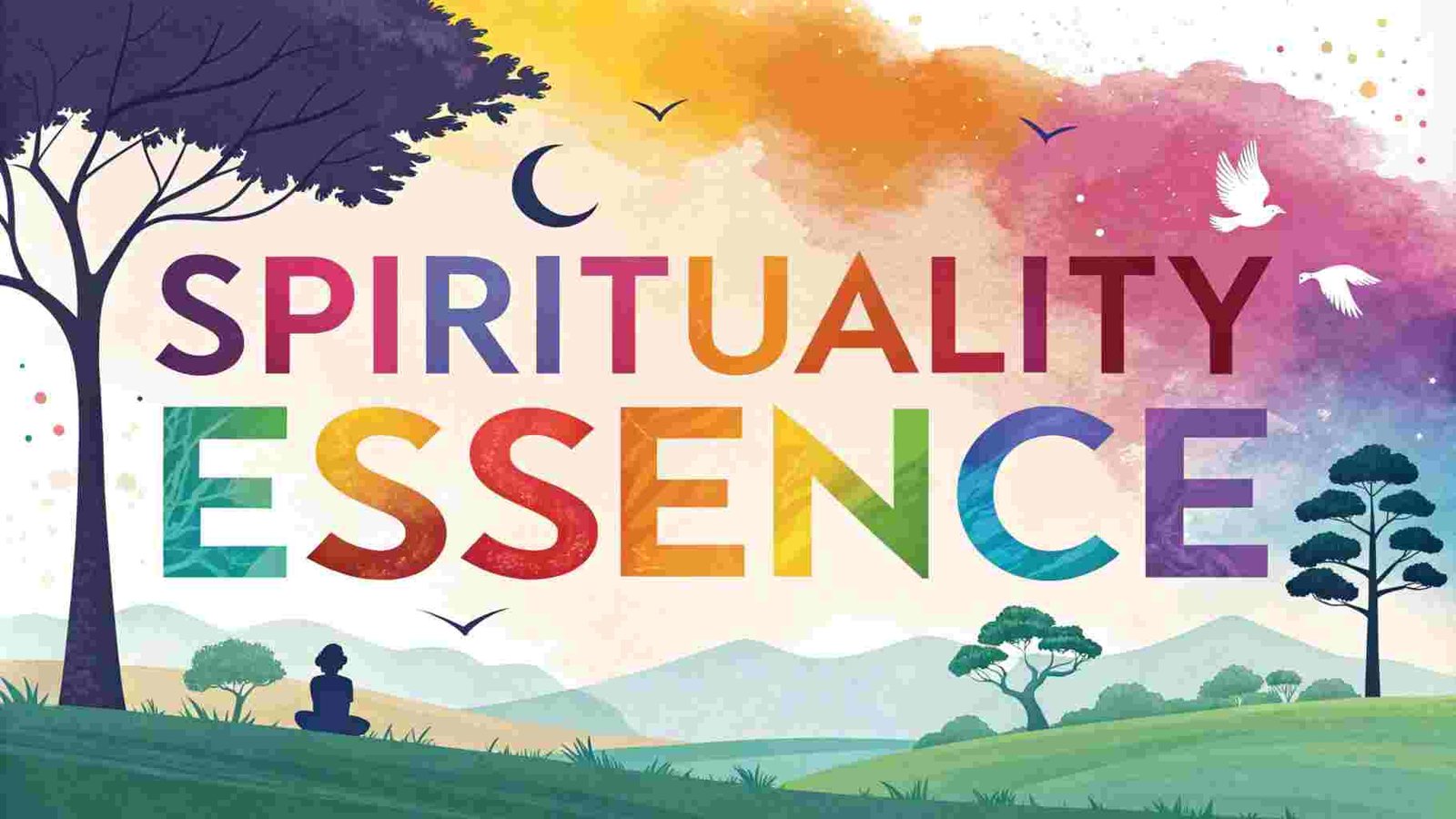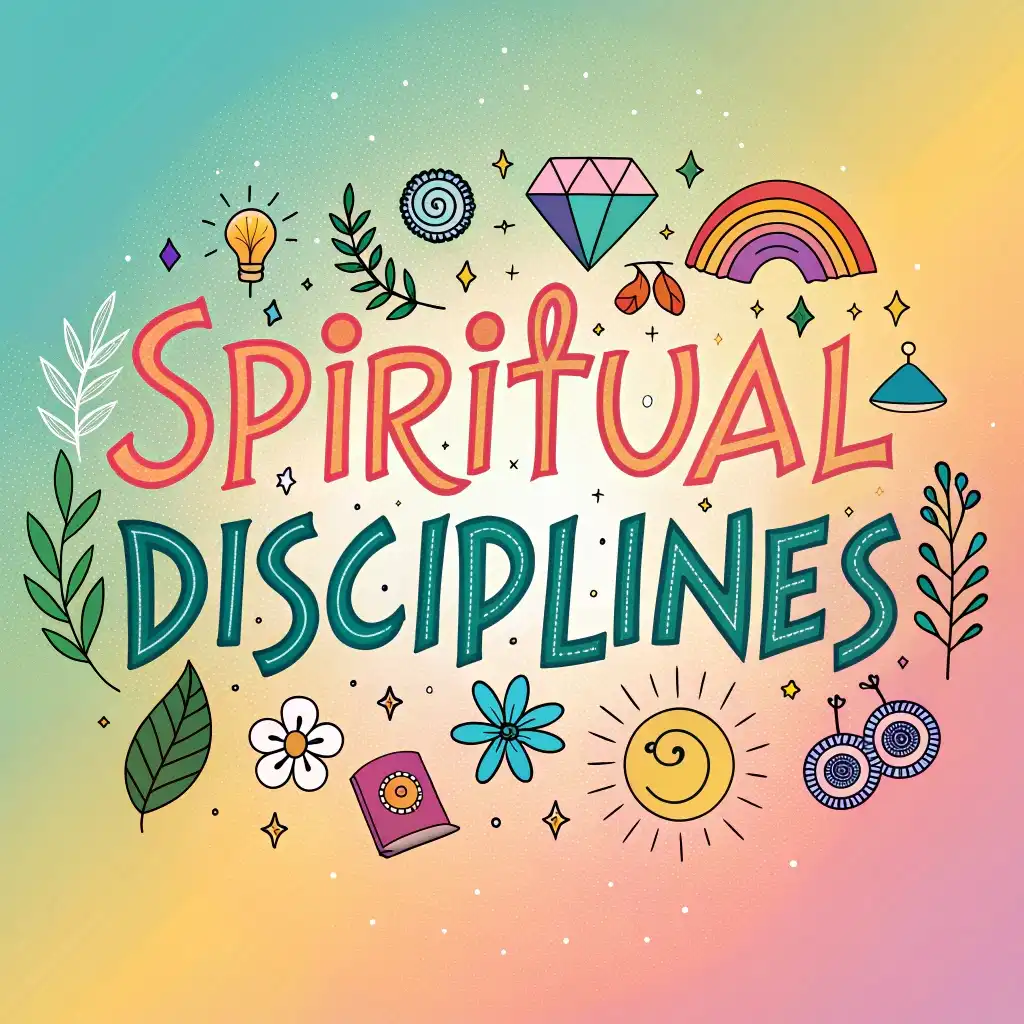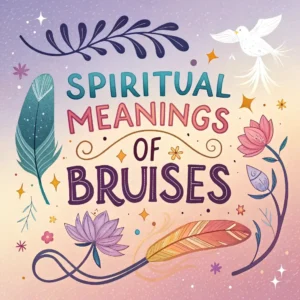Have you ever wondered how some people seem so calm, happy, and full of energy? They might be practicing something called spiritual disciplines! These are simple habits that help people feel closer to themselves, others, and even God or nature.
Whether you’re looking for peace, joy, or just a way to handle stress better, spiritual disciplines can guide you there.
Imagine having tools that make your heart lighter, your mind clearer, and your days brighter. Sounds amazing, right?
In this blog post, we’ll explore what spiritual disciplines are, why they matter, and how you can start using them in your life.
In a Nutshell
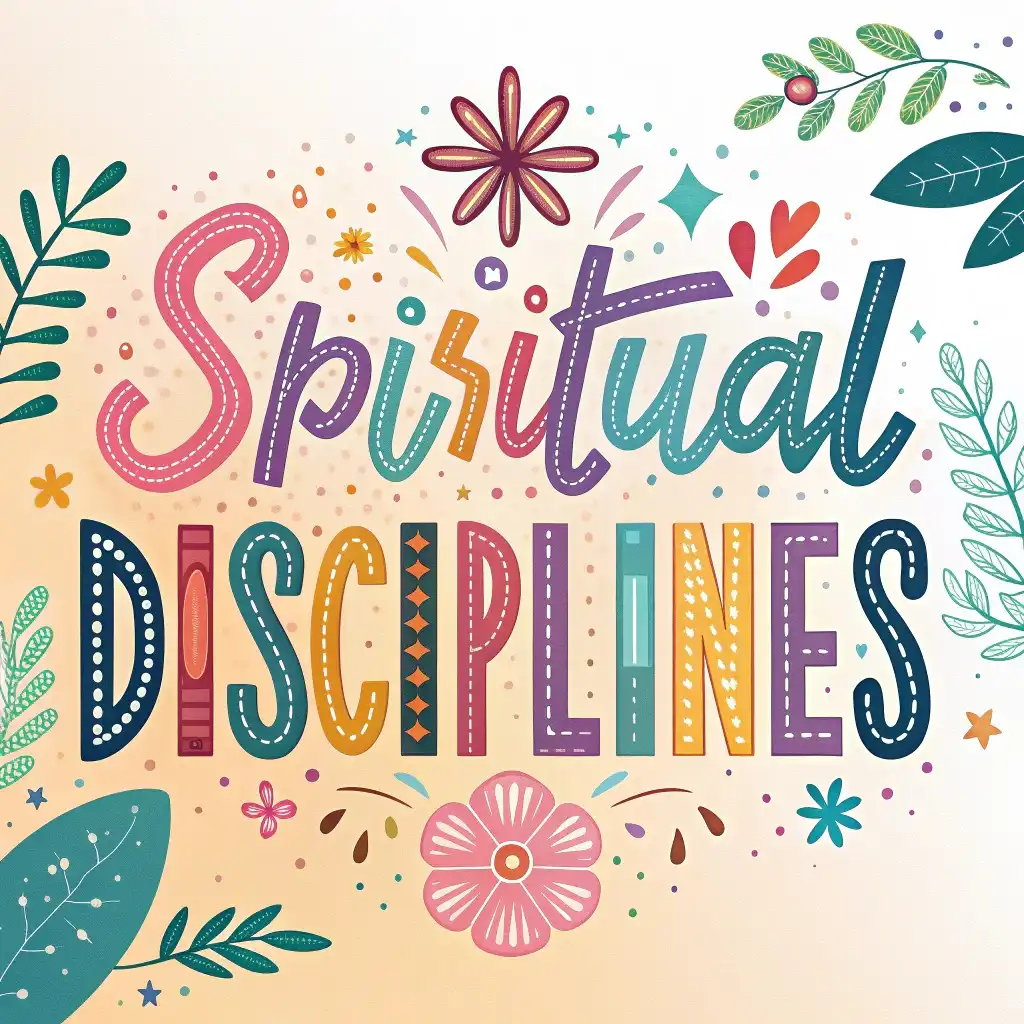
- What Are Spiritual Disciplines?
These are habits like prayer, meditation, gratitude, and service that help people grow spiritually. - Why Do They Matter?
Practicing spiritual disciplines helps reduce stress, improve focus, and bring more happiness into daily life. - Who Can Practice Them?
Anyone! You don’t need special skills or beliefs—just an open heart and mind. - How Do I Start?
Begin with small steps, like taking five minutes each day to meditate or write down things you’re thankful for. - Benefits Include:
- Feeling calmer during tough times
- Building stronger relationships
- Gaining confidence and inner strength
- Popular Examples:
Some common spiritual disciplines include reading sacred texts, fasting, journaling, and spending time in nature. - Remember This:
The goal isn’t perfection—it’s progress. Even tiny efforts add up over time.
What Are Spiritual Disciplines?
Spiritual disciplines are actions or habits that help people connect with their inner selves, others, or a higher power. Think of them as exercises for your soul. Just like physical exercise makes your body stronger, spiritual disciplines strengthen your mind and spirit.
Some examples include prayer, where you talk to God or reflect quietly; meditation, which helps you relax and focus; and gratitude, where you notice and appreciate good things in life. People have practiced these habits for thousands of years because they work!
The best part is that anyone can try them. You don’t need fancy equipment or lots of money. All you need is a little time and willingness to give it a shot.
For instance, if you want to practice gratitude, you could start by writing down three things you’re thankful for every night before bed. Over time, this habit can shift your mindset from focusing on problems to noticing blessings.
Why does this matter? Because when we train our minds to think positively, we feel happier and more at peace. And who doesn’t want that?
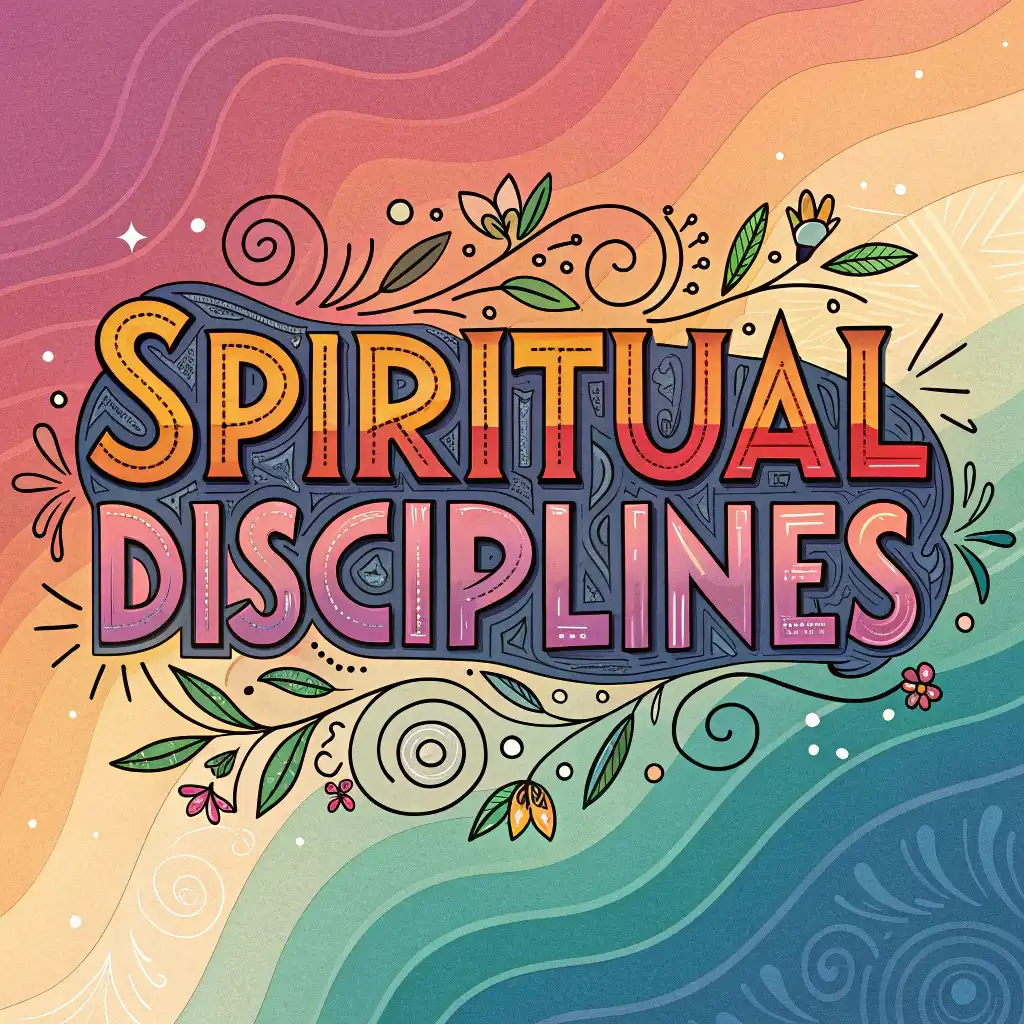
Why Should You Care About Spiritual Disciplines?
You might be wondering, “Why should I bother with spiritual disciplines?” Well, imagine feeling less stressed, more focused, and happier overall. That’s exactly what these practices can do for you!
When life gets busy or overwhelming, spiritual disciplines act like anchors. They keep you grounded and remind you of what truly matters.
For example, taking a few minutes to breathe deeply or pray can calm your nerves when you’re upset. Or, writing in a journal can help you process emotions and find solutions to challenges.
Another reason to care is that these habits build character. When you practice patience, kindness, or self-control regularly, you become better at handling difficult situations.
It’s like training a muscle—the more you use it, the stronger it gets. Plus, spiritual disciplines often lead to better relationships. When you’re kinder to yourself, you naturally treat others with more love and respect.
Lastly, many people report feeling a sense of purpose after adopting spiritual practices. They realize they’re part of something bigger than themselves, whether it’s family, community, or faith. This connection brings meaning and fulfillment to everyday life.
So, while spiritual disciplines may sound simple, their impact can be huge. Ready to see how they work?
How Prayer Changes Your Life
Prayer is one of the most well-known spiritual disciplines, but it’s not just about asking for things. Prayer is a way to communicate—with God, the universe, or even your own heart. Many people find comfort in sharing their thoughts, worries, and dreams through prayer.
For example, imagine you’re nervous about a big test at school. Instead of letting fear take over, you can pray for calmness and clarity.
Saying words out loud or silently can ease anxiety and give you courage. It’s like talking to a trusted friend who always listens without judgment.
But prayer isn’t only for tough times. You can also use it to celebrate joys and express thanks. Maybe you aced that test or made a new friend. Taking a moment to say “thank you” reminds you to cherish those moments.
There are different ways to pray too. Some people recite traditional prayers, while others speak freely from the heart. Others prefer silent reflection. No matter how you do it, the key is consistency. Even five minutes a day can make a difference.
Studies show that regular prayer lowers stress levels and improves mental health. So next time you feel stuck, try praying—it might surprise you how much it helps!
The Magic of Meditation
Meditation is another powerful spiritual discipline that anyone can try. It involves sitting quietly and focusing your attention, usually on your breath or a calming thought. At first, it might feel strange or hard to sit still, but with practice, it becomes easier—and super rewarding.
One cool thing about meditation is that it slows down racing thoughts. If your mind feels like a busy highway, meditation turns it into a peaceful park.
By concentrating on your breathing or repeating a word (called a mantra), you create space between you and stressful thoughts. This space lets you respond calmly insteadof reacting impulsively.
Kids can benefit from meditation too! Schools around the world teach mindfulness exercises to help students concentrate better and stay calm. For instance, closing your eyes and picturing a favorite place—like the beach or a forest—can instantly relax you.
Over time, meditation boosts brainpower. Scientists have found that people who meditate regularly have improved memory, creativity, and problem-solving skills. Plus, it strengthens emotional resilience, helping you bounce back faster from setbacks.
To get started, set aside five minutes in a quiet spot. Sit comfortably, close your eyes, and focus on your breath. Don’t worry if your mind wanders—that’s normal.
Gently bring your attention back to your breathing whenever it happens. With practice, you’ll notice positive changes in how you think and feel.

Gratitude: A Simple Path to Happiness
Gratitude is one of the easiest yet most impactful spiritual disciplines. It means recognizing and appreciating the good things in your life, no matter how small. Did someone smile at you today? Write it down. Enjoyed a yummy meal? Be thankful for it.
Research shows that practicing gratitude rewires your brain to focus on positivity. When you intentionally look for blessings, you stop dwelling on negatives.
For example, instead of complaining about homework, you might feel grateful for learning new things. This shift creates a ripple effect, making you happier and more optimistic.
A fun way to practice gratitude is by keeping a journal. Each day, jot down three things you’re thankful for. They don’t have to be big—maybe it’s sunshine, laughter with friends, or a cozy blanket. Over time, you’ll collect a treasure chest of happy memories.
Sharing gratitude with others amplifies its power. Telling someone “thank you” brightens their day and strengthens your bond. Imagine how good it feels to hear, “I’m so glad we’re friends.” Little acts of kindness go a long way.
By embracing gratitude, you’ll discover joy in unexpected places. Life won’t always be perfect, but gratitude helps you see silver linings even on cloudy days.
Fasting: More Than Skipping Meals
Fasting is often misunderstood as simply skipping food, but it’s much deeper than that. It’s about giving up something temporarily to focus on what truly matters. While many associate fasting with religious traditions, anyone can adopt it as a spiritual discipline.
During a fast, you might skip meals, avoid snacks, or give up distractions like TV or social media. The idea is to redirect your energy toward reflection, prayer, or other meaningful activities.
For example, if you usually spend hours scrolling online, fasting from screens frees up time to read, meditate, or connect with loved ones.
Fasting teaches self-control. When you resist temptation, you prove to yourself that you’re stronger than cravings. This builds confidence and discipline, which spill over into other areas of life.
Kids can try mini-fasts, like skipping dessert for a week or limiting video games, to experience similar benefits.
Physically, fasting has perks too. Giving your body a break from constant eating supports digestion and boosts energy. Many people report feeling lighter and more alert after fasting.
If you decide to try fasting, start small. Skip one meal or give up a habit for a day. Pay attention to how it affects your mood and mindset. Remember, the goal isn’t punishment—it’s growth.
Reading Sacred Texts for Wisdom
Sacred texts, like the Bible, Quran, or Bhagavad Gita, offer timeless wisdom. Reading them is a spiritual discipline that inspires reflection and guidance. Even if you’re not religious, exploring these writings can spark curiosity and insight.
Each text shares stories, teachings, and lessons about life, love, and purpose. For instance, the Bible talks about forgiveness, while the Quran emphasizes compassion. Reflecting on these messages helps you apply them to modern challenges.
To make reading sacred texts enjoyable, pick short passages and think about their meaning. Ask questions like, “What does this teach me?” or “How can I live this lesson today?” Discussing ideas with family or friends adds depth to your understanding.
Many people find comfort in sacred texts during tough times. Their words remind us we’re never alone and encourage hope. Whether you read daily or occasionally, sacred texts enrich your perspective and nurture your spirit.
Serving Others: Love in Action
Serving others is a beautiful spiritual discipline that spreads kindness and joy. Helping someone in need—whether it’s volunteering, donating, or simply listening—fills both giver and receiver with warmth.
When you serve, you step outside yourself and focus on others. This shifts your mindset from “me” to “we,” fostering empathy and connection. For kids, acts of service can be simple, like helping a sibling or picking up litter.
Service also teaches humility. Realizing you can make a difference, no matter how small, boosts confidence and gratitude. Plus, it feels amazing to know you’ve brightened someone’s day.
Whether baking cookies for neighbors or organizing a charity drive, serving others strengthens communities and hearts. As Mahatma Gandhi said, “The best way to find yourself is to lose yourself in the service of others.”
Spending Time in Nature
Nature is a natural healer and teacher. Spending time outdoors is a spiritual discipline that refreshes your mind, body, and soul. Walking barefoot on grass, watching sunsets, or stargazing connects you to something greater than yourself.
Studies show that being in nature reduces stress and increases happiness. Trees, rivers, and animals remind us of life’s beauty and simplicity. Next time you’re outside, pause and soak it all in. Notice colors, sounds, and smells. Let nature ground you.
Activities like gardening or hiking deepen this connection. Planting seeds teaches patience and responsibility, while climbing mountains builds perseverance. Families can enjoy picnics or campfires together, creating lasting memories.
Nature invites awe and wonder, sparking curiosity and creativity. By spending time outdoors, you recharge and rediscover joy in everyday moments.
Journaling: Writing Your Way to Peace
Journaling is a personal spiritual discipline that clears your mind and organizes thoughts. Writing about feelings, goals, or experiences helps process emotions and gain clarity.
Start by setting aside ten minutes daily. Write whatever comes to mind—no rules, no judgment. Over time, patterns emerge, revealing insights about yourself and your journey.
Kids can journal too! Drawing pictures or listing favorite things counts as journaling. Encourage creativity and honesty. Journals become keepsakes filled with growth and memories.
Journaling also tracks progress. Looking back at past entries shows how far you’ve come. Celebrate victories, learn from mistakes, and dream boldly. Words hold power—use them wisely.
FAQs
What Are the Best Spiritual Disciplines for Beginners?
Start with prayer, gratitude, or meditation. These are simple yet effective practices anyone can try.
How Long Should I Practice Daily?
Even five minutes makes a difference. Consistency matters more than duration.
Can Kids Practice Spiritual Disciplines?
Absolutely! Adapt practices to fit their age and interests.

Hello, I’m Zephyra, your guide at SpiritualityEssence.com. I’m passionate about uncovering life’s mysteries and sharing transformative insights. Let’s explore mindfulness, ancient rituals, and the path to a more awakened life together. Join me on this spiritual journey!
